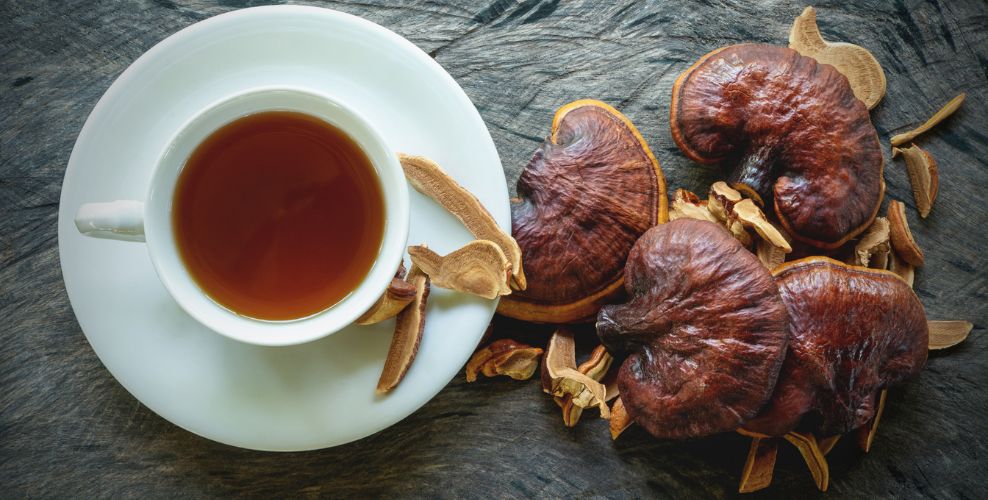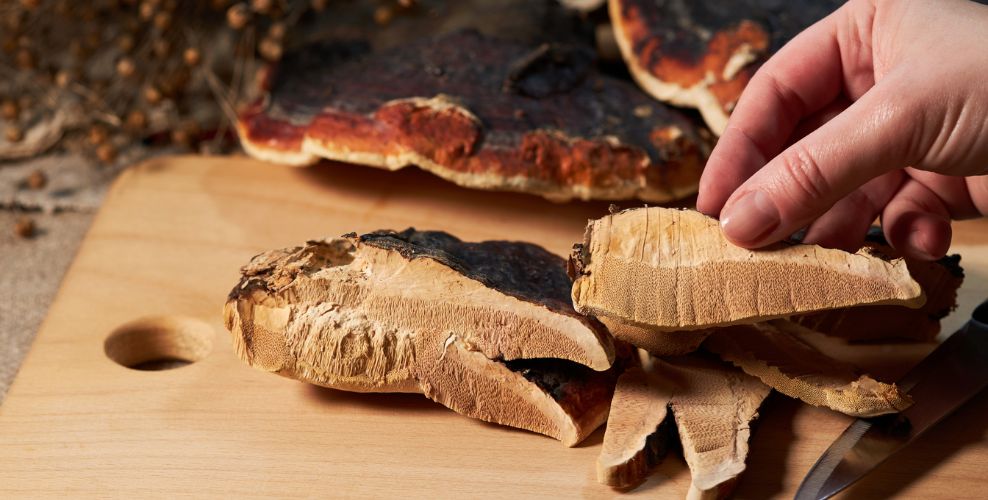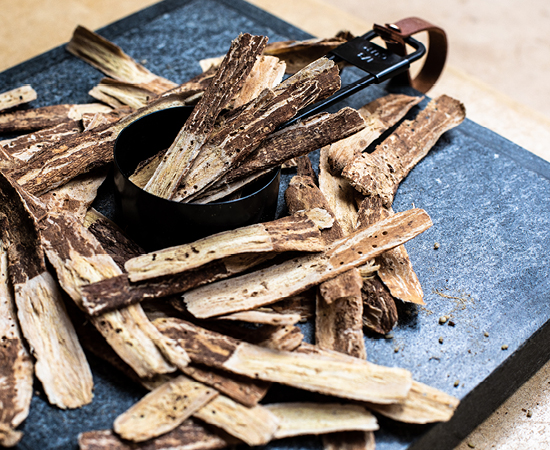The Ultimate Guide To Reishi
Quick overview
- Reishi is a mushroom that has been used in the traditional medicine of China and Japan for over 4000 years
- Reishi has been traditionally used in Chinese medicine to enhance immune system health
- Reishi has been traditionally used in Chinese medicine to relieve sleeplessness, restlessness and symptoms of mild anxiety.

What is reishi?
Reishi is the common name for Ganoderma lucidum - a large mushroom with a glossy exterior and a woody texture found throughout the Americas, Europe, and Asia. It can vary in colour from reddish-orange to black and likes to grow on oak and plum trees.1,2
History of reishi
Reishi has been used in the traditional medicine of China and Japan for over 4000 years.1
It was first mentioned in the traditional Chinese medicine (TCM) texts as early as 25-220 CE and was used to promote health and longevity. Reishi was believed to have the ability to tonify, enhance vital energy, strengthen cardiac function, improve memory, and prolong life.2
In Chinese herbal medicine, reishi is known as Ling zhi which translates as ‘spiritual mushroom’ and is often referred to as the “mushroom of immortality”, “ten-thousand-year mushroom”, “mushroom of spiritual potency”, and “spirit plant”.3
Benefits of reishi
Reishi has a wide range of benefits. In Chinese medicine, reishi has traditionally been used to:
- Enhance immune system health
- Relieve fatigue
- Relieve feelings of weakness
- Relieve sleeplessness and disturbed sleep
- Relieve symptoms of mild anxiety
- Relieve restlessness
- Reduce mental fatigue
- Nourish the blood to relieve irritability

How reishi supports mood
In Chinese herbal medicine, reishi mushroom translates as spiritual mushroom and is traditionally used to ‘calm the shen’. 4
In TCM shen refers the mental, emotional and spiritual state of a person.5 When there are disharmonies within the shen it can result in mood imbalances.6
In Chinese medicine, reishi has traditionally been used calm disturbed shen – making it helpful for nervousness and sleeplessness. It is also used traditionally to calm the mind, and when there is restlessness of the heart – which is where the shen resides.7
Modern research supports these ancient uses of reishi with studies finding that taking reishi supplements can lead to improved levels of happiness, life satisfaction and mood.8
Reishi is also an adaptogen – offering protection from unproductive stress, and enhancing our ability to adapt to stressors, making it helpful in times of chronic stress, and chronic deficiency conditions with fatigue, weakness, low stamina and vitality present.7
What fusion product is reishi in?
You can find reishi in Fusion Mood Support where it is used to relieve physical fatigue and reduce mental fatigue, and calm the mind and spirit based on traditional use in Chinese medicine. It is combined with affron® to support healthy mood balance in adults and teens. Plus zinc, vitamin B5 & B6 to support energy levels and healthy mental function.
You’ll also find it in Fusion Astra 8 Immune Tonic where it is improves immunity and relieves tiredness, based on traditional use in Chinese medicine, and is combined with astragalus, traditionally taken to enhance immune defences and to help decrease the frequency of common colds in Chinese medicine.
Always read the label and follow the directions for use.
References
- Hobbs CL. Medicinal Mushrooms: An exploration of tradition, healing & culture. 1986. Botanica Press, Tennessee.
- Wachtel-Galor S, et al. In: Benzie IFF, Wachtel-Galor S, eds. Herbal Medicine: Biomolecular and Clinical Aspects. 2nd edition. 2011. CRC Press/Taylor & Francis, Boca Raton (FL).
- Wasser, S. W. in Encyclopedia of Dietary Supplements. 2nd Ed. 2010. Coates, P. M., Betz, J. M., Blackman, M. R., Cragg, G. M., Levine, M., Moss, J., and White, J. D. (eds). Informa Healthcare, New York. Pp. 680-690
- Chen, J. & Chen, T. Chinese Medical Herbology and Pharmacology. 2001. Art of Medicine Press, CA, USA.
- Maciocia G. The Foundations of Chinese Medicine. 3rd Ed. Elsevier, London.
- Maclean, W. Lyttleton, J. Bayley, M. & Taylor, K. Clinical Handbook of Internal Medicine the Treatment of Disease with Traditional Chinese Medicine. 2nd Ed. 2018. Seattle, Eastland Press.
- Holmes P. Jade Remedies: A Chinese Herbal Reference for the West – Vol 1 & 2. 1997. Snow Lotus Press, Boulder.
- Pazzi F, et al. Ganoderma lucidum: Effects on Mood and Health-Related Quality of Life in Women with Fibromyalgia. Healthcare (Basel). 2020 Nov 30;8(4):520.






















